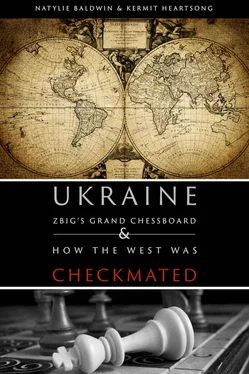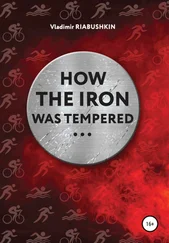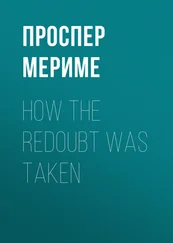Kermit Heartsong - Ukraine - ZBIG's Grand Chess Board & How The West Was Checkmated
Здесь есть возможность читать онлайн «Kermit Heartsong - Ukraine - ZBIG's Grand Chess Board & How The West Was Checkmated» весь текст электронной книги совершенно бесплатно (целиком полную версию без сокращений). В некоторых случаях можно слушать аудио, скачать через торрент в формате fb2 и присутствует краткое содержание. Год выпуска: 2015, Жанр: Политика, на английском языке. Описание произведения, (предисловие) а так же отзывы посетителей доступны на портале библиотеки ЛибКат.
- Название:Ukraine: ZBIG's Grand Chess Board & How The West Was Checkmated
- Автор:
- Жанр:
- Год:2015
- ISBN:нет данных
- Рейтинг книги:4 / 5. Голосов: 1
-
Избранное:Добавить в избранное
- Отзывы:
-
Ваша оценка:
- 80
- 1
- 2
- 3
- 4
- 5
Ukraine: ZBIG's Grand Chess Board & How The West Was Checkmated: краткое содержание, описание и аннотация
Предлагаем к чтению аннотацию, описание, краткое содержание или предисловие (зависит от того, что написал сам автор книги «Ukraine: ZBIG's Grand Chess Board & How The West Was Checkmated»). Если вы не нашли необходимую информацию о книге — напишите в комментариях, мы постараемся отыскать её.
Ukraine: ZBIG's Grand Chess Board & How The West Was Checkmated — читать онлайн бесплатно полную книгу (весь текст) целиком
Ниже представлен текст книги, разбитый по страницам. Система сохранения места последней прочитанной страницы, позволяет с удобством читать онлайн бесплатно книгу «Ukraine: ZBIG's Grand Chess Board & How The West Was Checkmated», без необходимости каждый раз заново искать на чём Вы остановились. Поставьте закладку, и сможете в любой момент перейти на страницу, на которой закончили чтение.
Интервал:
Закладка:
A September 2013 report by the Belfer Center for Science and International Affairs of the Harvard Kennedy School found that the US government's narrative about the events in Libya that supposedly required a “humanitarian intervention”—repeated by the mainstream media — was wrong. In fact, the uprising in Libya was armed and violent from the beginning and Qaddafi's military response did not target civilians or use indiscriminate force. These findings were supported by the UN, Amnesty International, and Human Rights Watch (Kuperman 2013).
A similar process was attempted in Syria but was thwarted by a combination of Russian diplomacy and elements of Obama's military leadership being weary of a full-fledged military engagement on the erroneous assertion of Assad's responsibility for a sarin gas attack (Hersh 2014; Lloyd 2013).
Parry (2014) cites a Washington insider as confessing that these two ideologies “now represent the dominant foreign policy establishment in Official Washington.” The source went on to observe that “the Neocons are motivated by two things, love of Israel and hatred of Russia. Meanwhile, the R2Pers are easily enamored of idealistic young people in street protests” (Parry, April 2014).
Putin, educated in international law, publicly expressed grave concern at the pattern of intervention being established by both Bush and Obama. At the outset of intervention in Libya, Putin said the following to international journalists:
About the UN resolution, which gives grounds for the present military intervention — this resolution is defective. If we look at what is written there, it becomes obvious that it allows anyone to take any action against a sovereign state. It reminds me of the medieval call for a crusade. When countries call on each other to go out and liberate something.
But, you know, I don’t worry more about this military intervention — there are a lot of military conflicts going on and, unfortunately, will unfold in the future. I’m more worried about the ease with which decisions are being made to use force in international affairs nowadays. For example, it has become a steady trend in US policy. During Clinton’s era, they bombed Yugoslavia and Belgrade. Bush invaded Afghanistan. Iraq was invaded under far-fetched false pretenses, liquidating an entire administration, including Saddam’s children. And now it’s Libya’s turn. It opens with a pretext to defend civilians, but it’s the civilians who die under the bombs during airstrikes. Where is the logic and conscience here? Both are absent. There are already victims among the civilians. (Putin 2011)
The R2P doctrine still has traction among mainstream western commentators, however, as Jean Bricmont observes in his book Humanitarian Imperialism: Using Human Rights to Sell War , those who exercise power typically utilize an ideology that is meant to convince those on the receiving end that the power being exercised over them is for their own good. Such language was found among Hitler's supporters in Germany and renowned American commentators during the Vietnam War.
He goes on to explain that ideology is the most important in “open” and “democratic” societies where it constitutes the main form of social control by marginalizing debate outside of a narrow set of parameters. These methods are arguably much more effective than the control by fear that autocratic societies utilize:
Today's secular priesthood is made up of opinion makers, media stars of all kinds, and a considerable number of academics and journalists. They largely monopolize public debate, channeling it in certain directions and setting the limits on what can be said, while giving the impression of a free exchange of ideas. One of the most common ideological reinforcement mechanisms is to focus debate on the means employed to achieve the supposedly altruistic ends claimed by those in power, instead of asking whether the proclaimed aims are the real ones, or whether those pursuing them have the right to do so. (Bricmont 2006)
Hence, respectable debate in our so-called open and “liberal” media in the US is focused on the effectiveness of means and tactics of the policy and not the legitimacy of the aims or the policy itself. In contrast to an autocratic society, the purveyors of propaganda among the secular priesthood in open societies typically believe the distortions and obfuscations they peddle.
Based on what transpired in the Balkans and in Libya after US/NATO intervention, as well as what turned out to be faulty evidence or outright mendacity regarding the reasons for the interventions in both areas in the first place, along with the near intervention in Syria following the same pattern, the argument that US/NATO military interventions is the way to stop or prevent genocide, ethnic cleansing and other crimes against humanity is refuted.
On September 1, 2014, when French and Russian diplomats and parliamentarians convened a dialogue on the Ukraine crisis, the participants stated that these abuses had degraded the efficacy of international law:
The Ukrainian crisis is in fact a product of the destruction of the framework of international law that we have experienced since the middle of the 1990s and which manifested itself around the subjects of Kosovo (1998-99), of Iraq (2003) — the magnitude of whose consequences are today being measured — and, more recently, of Libya. Today we are tasting the bitter fruits of this destruction of the rules of international law; a destruction for which the United States and NATO bear the responsibility. It is not possible to find a framework for resolving this crisis without rules that are acknowledged by all. International law is still based on two rules, which are profoundly contradictory: respect for the sovereignty of states and the right of peoples to determine for themselves. Mediation between these two principles has been dramatically and permanently weakened by the actions of NATO states and the United States since the end of the 1990s. It is these mediations that we must rebuild. (Slavyangrad 2014)
No further movement seems to be imminent to get the R2P doctrine incorporated into an international treaty, and its evolution into an eventual customary norm has hit some snags among countries in the global south. In fact, during the UN General Assembly's “High Level Meeting on the Rule of Law at the National and International Levels” in September of 2012, the resulting Declaration expressed no further support or even mention of the R2P doctrine (Boyle 2013).
Cohn points out that during General Assembly discussions on the issue back in 2009, the Cuban delegation raised some prescient and thought-provoking issues that are worth quoting here:
Who is to decide if there is an urgent need for an intervention in a given State, according to what criteria, in what framework, and on the basis of what conditions? Who decides it is evident the authorities of a State do not protect their people, and how is it decided? Who determines peaceful means are not adequate in a certain situation, and on what criteria? Do small states have also the right and the actual prospect of interfering in the affairs of larger States? Would any developed country allow, either in principle or in practice, humanitarian intervention in its own territory? How and where do we draw the line between an intervention under the Responsibility to Protect and an intervention for political or strategic purposes, and when do political considerations prevail over humanitarian concerns? (Cohn 2011)
chapter 3
NATO Expansion & american empire
Expanding NATO would be the most fateful error of American policy in the entire post-cold-war era. Such a decision may be expected to inflame the nationalistic, anti-Western and militaristic tendencies in Russian opinion; to have an adverse effect on the development of Russian democracy; to restore the atmosphere of the cold war to East-West relations, and to impel Russian foreign policy in directions decidedly not to our liking.
Читать дальшеИнтервал:
Закладка:
Похожие книги на «Ukraine: ZBIG's Grand Chess Board & How The West Was Checkmated»
Представляем Вашему вниманию похожие книги на «Ukraine: ZBIG's Grand Chess Board & How The West Was Checkmated» списком для выбора. Мы отобрали схожую по названию и смыслу литературу в надежде предоставить читателям больше вариантов отыскать новые, интересные, ещё непрочитанные произведения.
Обсуждение, отзывы о книге «Ukraine: ZBIG's Grand Chess Board & How The West Was Checkmated» и просто собственные мнения читателей. Оставьте ваши комментарии, напишите, что Вы думаете о произведении, его смысле или главных героях. Укажите что конкретно понравилось, а что нет, и почему Вы так считаете.











